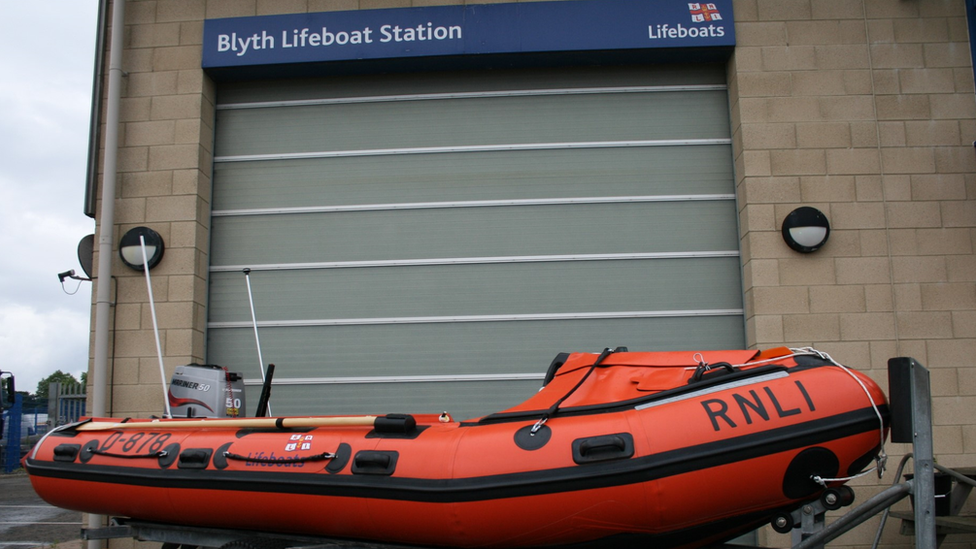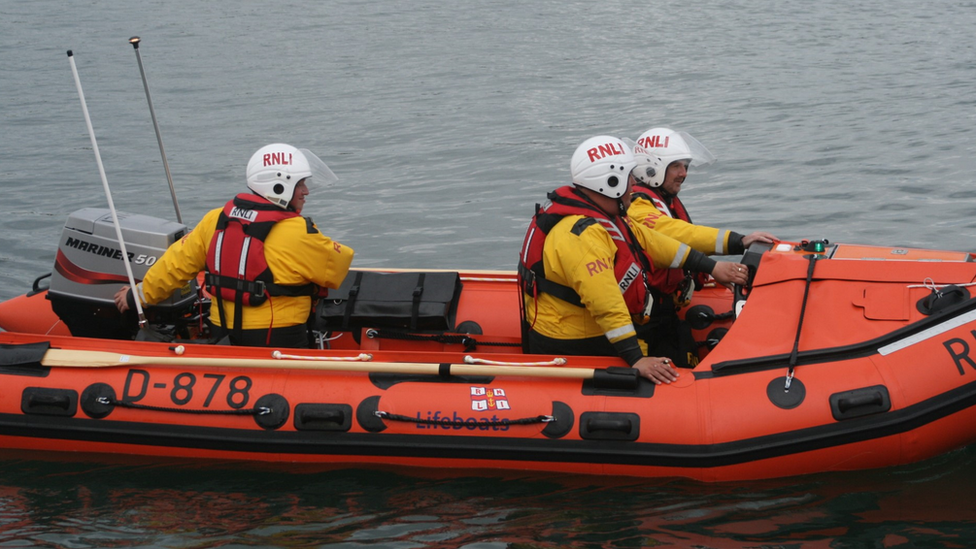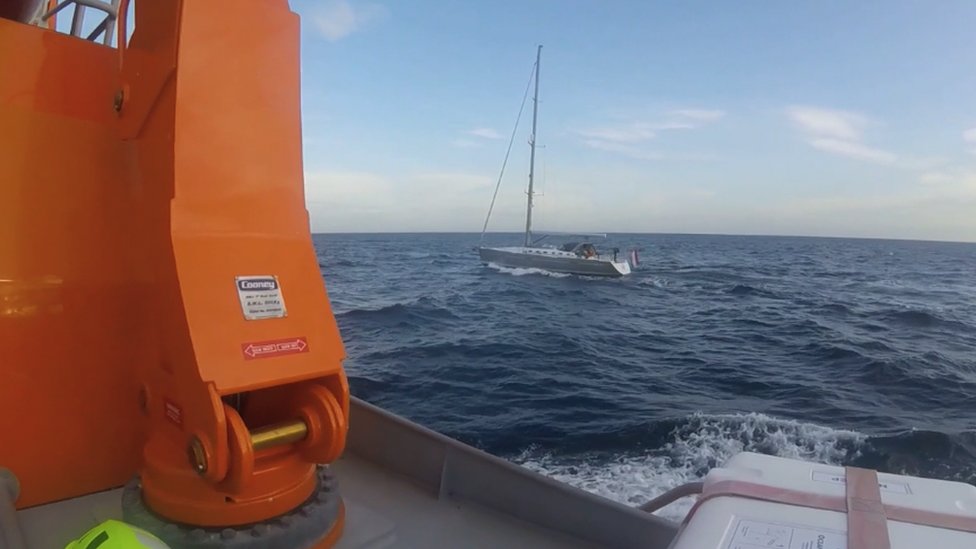RNLI delivers 'pocket rocket' lifeboat to Blyth station
- Published

The D-class lifeboat was delivered to the station at RNLI Blyth
A lifeboat station has received a new rescue vessel to help crews reach more difficult areas along the coast.
The D-class inshore lifeboat, which is inflatable and can reach up to 25 knots (30mph), will be kept at RNLI Blyth.
It will replace an aging boat which has saved 55 lives and helped 290 people, the charity said.
Lifeboat station helm Steven Fitch said the craft continued to be an "understated pocket rocket".
The fleet allows crews to carry out rescues in shallow water and near cliffs and rocks where larger lifeboats are unable to reach.
Introduced in 1963, more than 30,000 lives have been saved by crews using D-class lifeboats across the UK, according to the charity.

The lifeboat made its first trip on the River Blyth
"These fast and highly manoeuvrable lifesaving craft answered the need for a quicker and more agile response to rescues in areas of water that were more challenging to the larger and slower all-weather lifeboats," Mr Fitch said.
"The D-class inshore lifeboats are a part of our community and suit the demands of the rescues we attend."
He said the boat has "made a huge difference to the efficiency and effectiveness of our 24/7 search and rescue service".
The lifeboat station, external also operates a larger B-class Atlantic lifeboat, which can reach up to 35 knots (40mph).
Earlier this year, the RNLI took delivery of a new lifeboat in Amble, Northumberland, following the death of a couple who left thousands of pounds to fund a replacement.

Follow BBC North East & Cumbria on Twitter, external, Facebook, external and Instagram, external. Send your story ideas to northeastandcumbria@bbc.co.uk, external.
Related topics
- Published22 June 2023

- Published23 March 2023